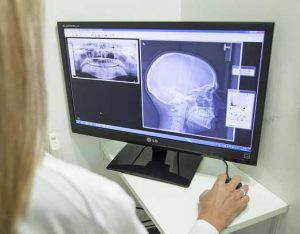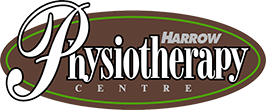TMJ Dysfunction
Custom Orthotics For Your Feet
The Temporomandibular Joint (TMJ) connects the mandible (your lower jaw bone) to your skull. The Temporomandibular Joints (TMJ) are complex and include a bony attachment, an articular disc (located in between the bones in the TMJ), and numerous muscles which act to open and close the jaw. Symmetry of movement is crucial for normal function of the TMJ. This requires perfect disc alignment, as well as balanced flexibility, co-ordination and strength in all the TMJ muscles. Clenching of your TMJ, arthritis, trauma, disc derangement or perforation, cervical spine dysfunction, bite abnormalities, muscle spasm, muscle weakness and poor posture can all lead to TMJ Dysfunction.
Symptoms of Temporomandibular (TMJ) Disorder vary greatly and can include:
- Jaw pain
- Clicking, popping, or grating noises with jaw movement
- Reduced mobility or locking of the TMJ
- Headaches
- Dizziness
- Ear ringing
- Ear pain

We have therapists that have advanced training in TMJ dysfunction and will determine the cause of your TMJ symptoms through the examination of:
- Quality and quantity of your TMJ movement
- Palpation to determine whether your TMJ is clicking, popping or making grating noises, which indicate derangement or damage to the articular disc
- TMJ muscle length, strength and co-ordination
- Cervical spine joint function and alignment
- Neurological sensitivity and tension testing for TMJ and Cervical spine
- Postural evaluation
We will work closely with your Dentist or Dental Surgeon to ensure the fastest possible resolution of your symptoms.
